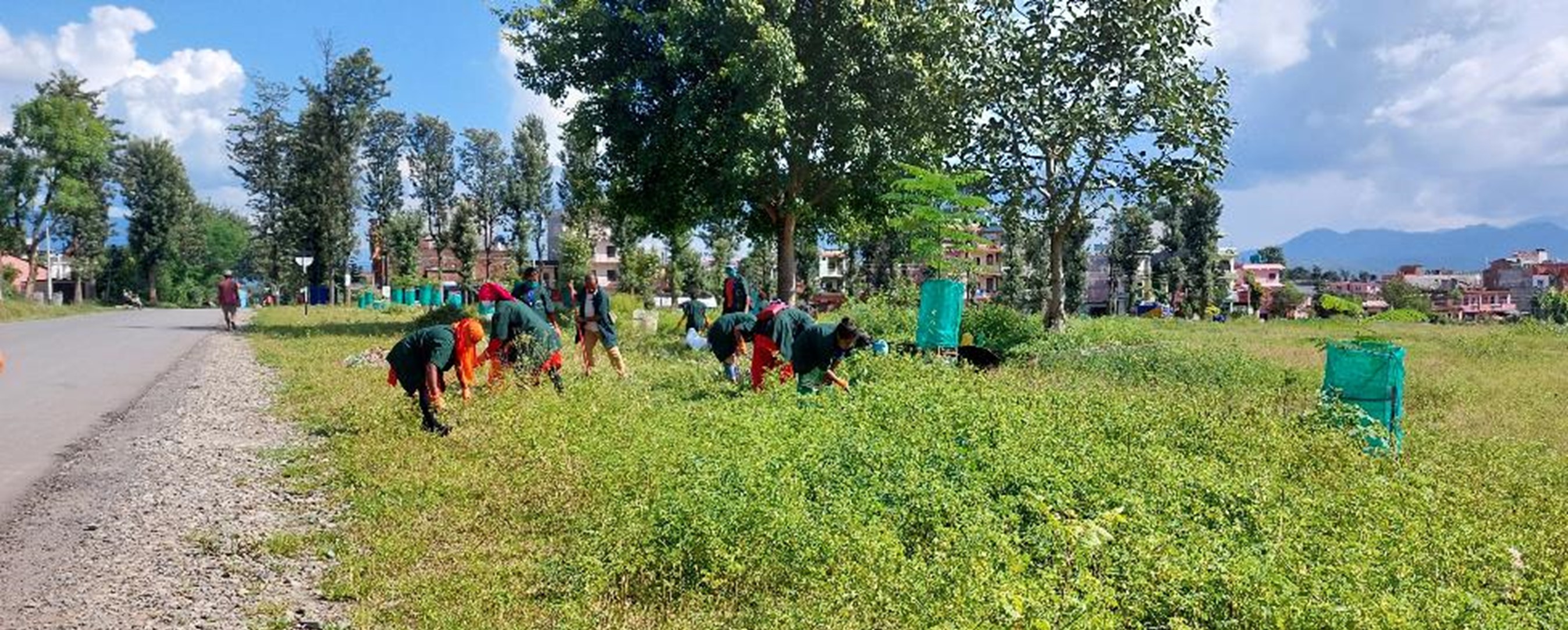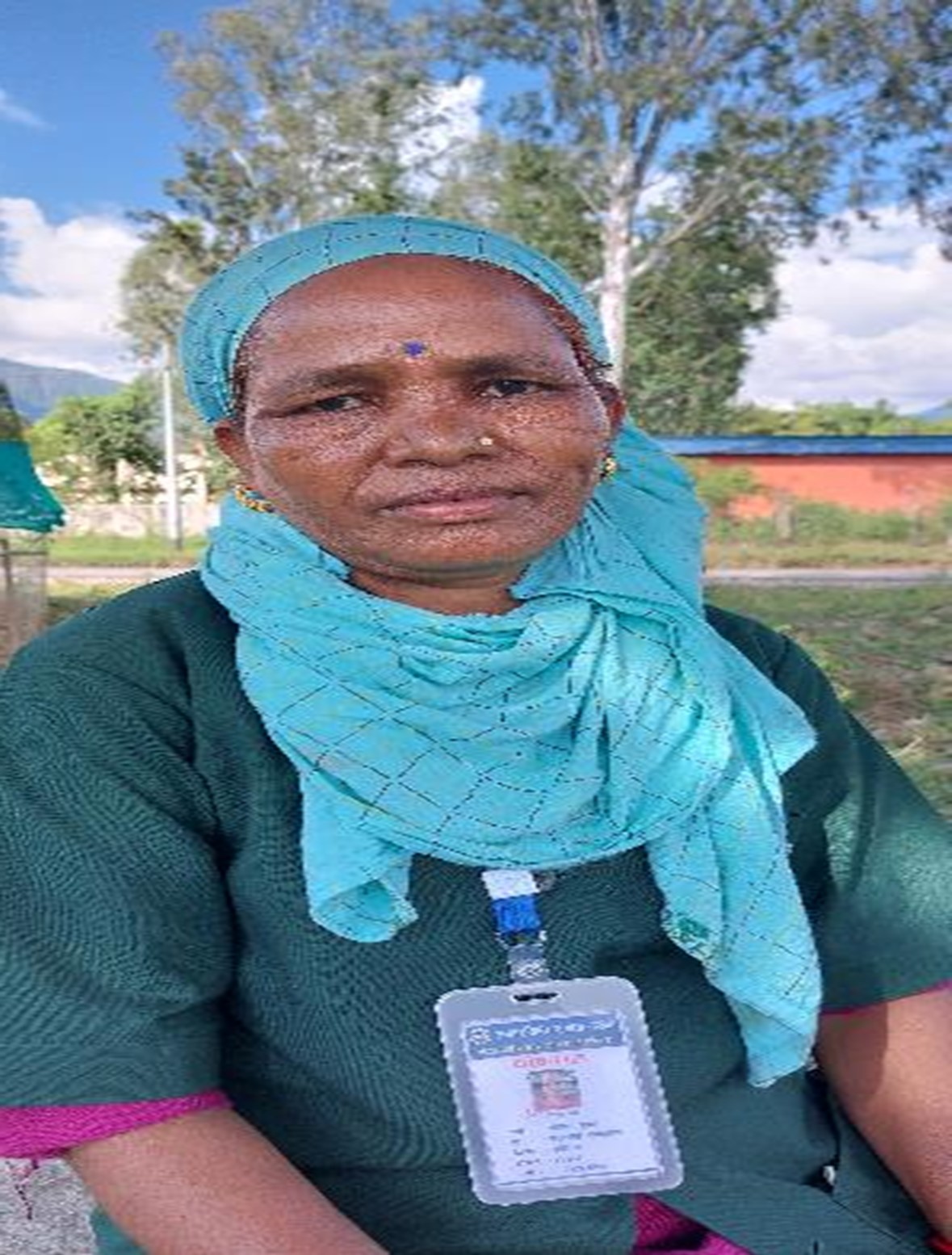Waste to wealth
September 26, 2022

When people walked past Santa’s house, they’d hold their noses or press a handkerchief to their nostrils.
“Why is there such an almighty stench here?” they’d ask once they passed
Santa would have to explain that the garbage hadn’t been collected for a long time. One day her cousin, Nanda, came to Santa with some good news.
“Santa baini, start keeping your degradable waste separately.”
“Why?”
“Because a new project is coming to the district. It will convert waste into wealth!” said Nanda.
Nanda Kali is 50 years old and a widow. She became one of 158 waste collectors who were trained and are now employed by UNDP’s Promoting Green Recovery project. As a frontline worker, Nanda collects waste for conversion into Vermicompost. This is an organic compound that uses earthworms to create the substance from decaying decomposable waste. She fascinates her grandchildren with stories of the magic the earthworms can create.

The management of municipal waste is one of the three components of the UNDP project. As a pilot project, it was set up in five municipalities across the country to convert biodegradable waste into organic fertilizer. The project trains and supports local farmers and has so far established over a thousand Vermicomposting plants. It has helped the farmers to obtain not just a good yield, but also a high market value for their produce.
With a shortage of chemical fertilizer supplies, Vermicompost can offer an important alternative to chemical fertilizer. It is environmentally-friendly and uses resources that are readily available locally. Vermicomposting has been practiced for many years, but reinventing it on a commercial scale represents a significant step forward in waste management. The project’s work can be replicated in many more cities to turn the challenge of solid waste management into a splendid opportunity to support organic farming.

 Locations
Locations